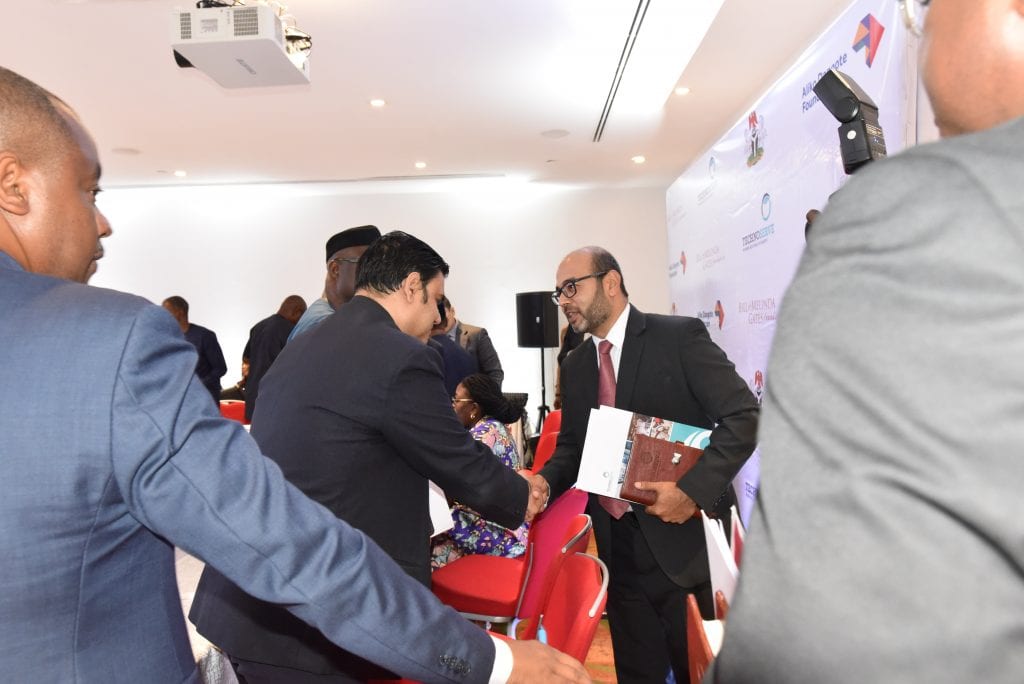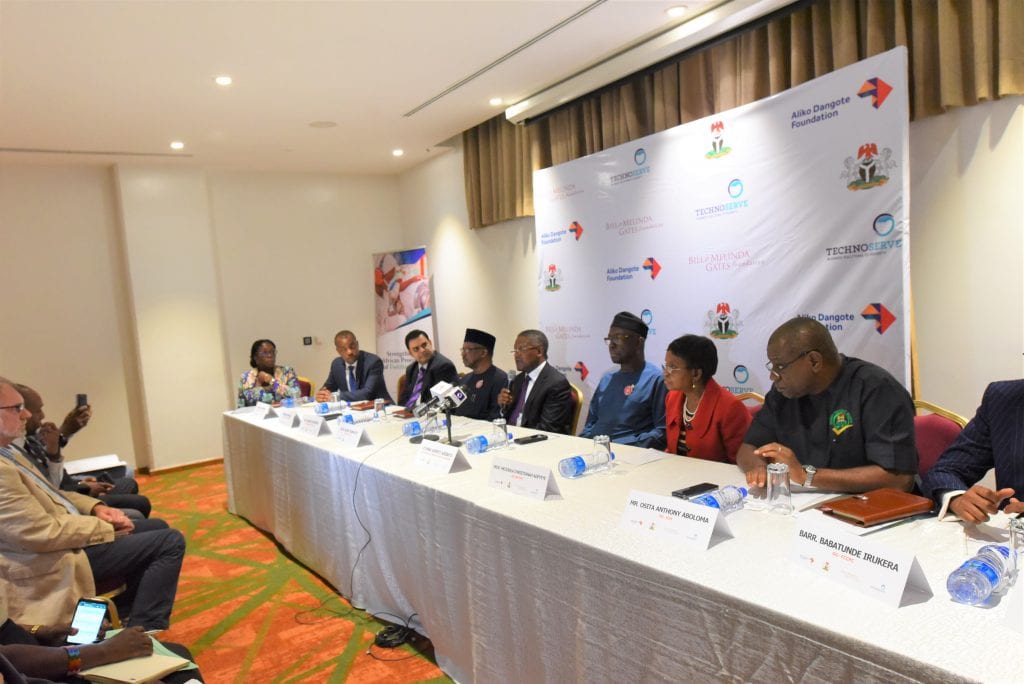A Business Solution to Malnutrition in Nigeria
On December 16, Nigerian food processors and other public and private sector leaders gathered for the second annual Nigerian Food Processing and Nutrition Leadership Forum in Lagos, Nigeria.

In Nigeria, an estimated 2 million children suffer from severe acute malnutrition, a condition that disproportionately impacts women and children. Children suffering from this “hidden hunger” are at risk of poor cognitive development and other health problems that can continue into adulthood, prohibiting subsequent generations from leading healthy, productive lives. Malnutrition also has economic implications, costing African countries an estimated 3%-16% of GDP annually as a result of diminished productivity and higher healthcare costs.
Despite the immense challenge of supporting a growing population, one relatively simple solution is offering hope. Fortifying staple foods with micronutrients such as iron, folate, iodine, zinc, and Vitamin A, has been widely recognized as one of the most promising, cost-effective strategies for addressing micronutrient malnutrition at scale.
Since July 2018, the amount of adequately fortified wheat flour has increased by 27%; fortified edible oil increased by 19%; fortified sugar increased 162%; and salt iodization levels remained at nearly 100%.
Food fortification has been a priority for governments throughout sub-Saharan Africa, and many countries already have mandates requiring fortification during food processing. However, processors often lack the economic incentive – as well as the technical knowledge in some cases – to comply. A sustainable business case and private sector support for food fortification is therefore essential for reducing malnutrition.
Since 2017, TechnoServe has been implementing a project funded by the Bill & Melinda Gates Foundation to help food processing companies in Nigeria, Kenya, and Tanzania improve their capacity to produce and sell fortified foods for local markets. By improving compliance, these companies are able to provide consumers with the nutrition they need to lead healthy and successful lives. “Nigeria will be the world’s third largest country by 2050. If we don’t address it now, poor nutrition threatens to hinder our ability to prosper and play a leading role in the global economy,” said Larry Umunna, TechnoServe’s West Africa regional director.

On December 16, Nigerian food processing CEOs and other private and public sector leaders gathered for the second annual Nigerian Food Processing and Nutrition Leadership Forum in Lagos, Nigeria. The event was organized by TechnoServe, the Bill & Melinda Gates Foundation, and the Aliko Dangote Foundation, as part of the Strengthening African Processors of Fortified Foods (SAPFF) program. Participants included Larry Umunna; Rizwan Yusufali, SAPFF’s regional program director; Aliko Dangote, president and CEO of Dangote Group; and (via video conference) Bill Gates, co-chair of the Bill & Melinda Gates Foundation.
The goal of the event was to sustain momentum and action on food fortification in Nigeria, while also providing a platform in which leaders could discuss challenges and opportunities. In particular, participants reviewed and expanded upon two commitments made during the first CEO forum last year. As part of this initiative, TechnoServe introduced the Micronutrient Fortification Index (MFI), a data-driven mechanism that will strengthen peer review and corporate measurement, as well as reward excellence and commitment to fortification. The second is the Joint Regulatory Framework (JRF), which provides a mechanism for monitoring and enforcing food fortification regulations.
During the first forum last July, many of the top food processing companies in Nigeria made commitments to improve their food fortification compliance. At the time, the level of fortification of processed foods was at 50%. Currently, 75% of processed foods in Nigeria are being fortified. “The target we have now given to ourselves is to reach about 90% before we meet again sometime next year,” Aliko Dangote said during the event. By committing to high-quality fortification, companies are taking critical steps to address the lack of access to basic nutrients and vitamins that holds back women’s and children’s health and development.




